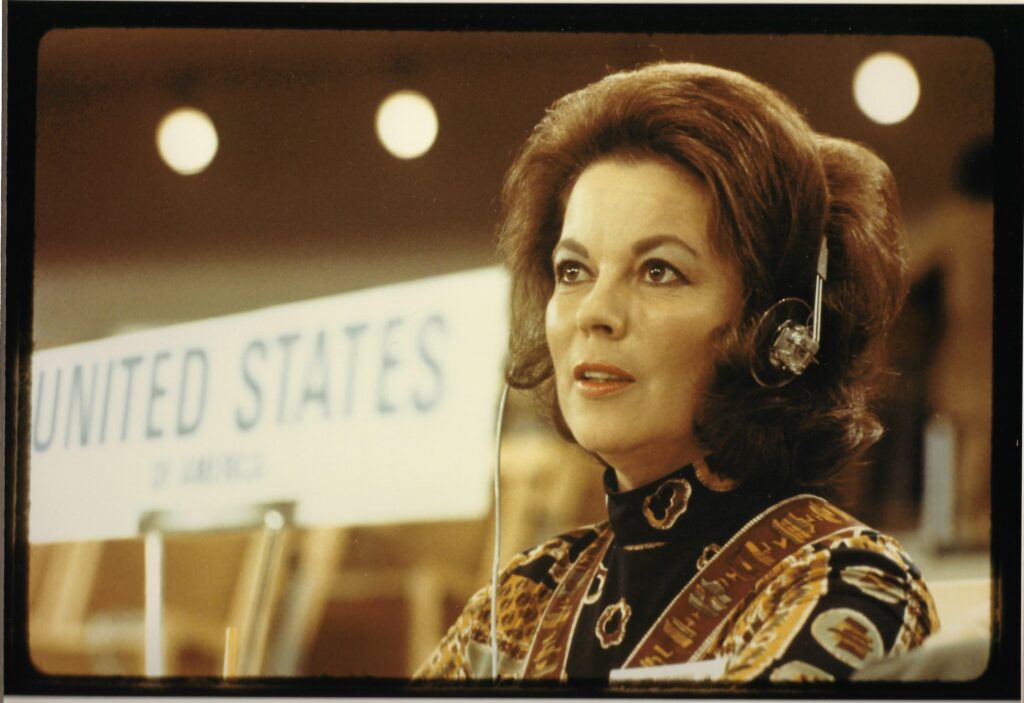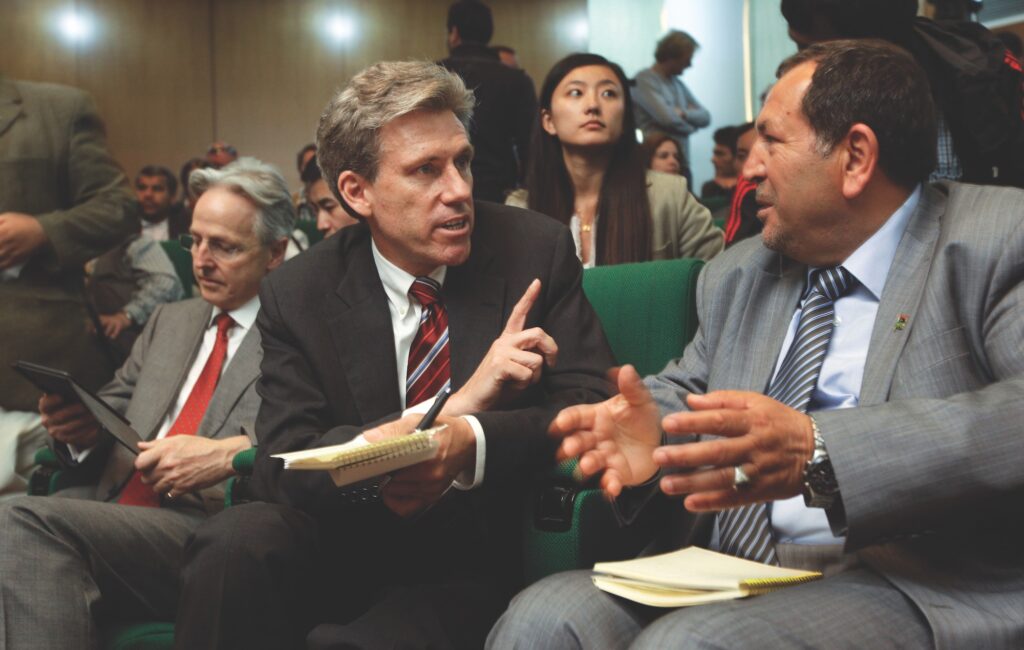Why does the United States encourage democratic values abroad?
American diplomacy helps foster and protect democratic values abroad, creating a more secure, stable, and prosperous world.

Democracy is more than a political system. It is a set of fundamental principles—including liberty, equality, human rights, and justice—that apply to all people.
Everywhere American diplomats go, they support these principles, even in countries that may not share our values.

Diplomats promote basic freedoms, including free speech, freedom of the press, and religious liberty. They advocate for equal rights for women and minorities. And they defend the right to a fair trial.
Diplomats monitor elections to ensure they are conducted freely and fairly. They work to prevent human rights abuses, including human trafficking and forced labor. And they educate people around the world about democracy and its benefits.